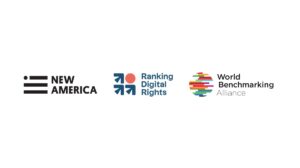The RDR team has recently submitted input on two consultations launched by the Office of the United Nations High Commissioner for Human Rights (OHCHR). The first addressed the human rights dimensions of network shutdowns. The other sought feedback on how to apply the UN Guiding Principles on Business and Human Rights (UNGPs) to tech companies.
Our submissions shine a light on two distinct sources of human rights risks. One of them emanates from governments using companies as enforcers of their will. Authorities have grown exceedingly comfortable with issuing network shutdown orders to network operators—the modern gatekeepers of access to digital communication. This unleashes a cascade of harms on the very people governments are meant to protect.
In our submission on network shutdowns, we emphasize that all mass disruptions to communication threaten human rights. They thicken the fog of war, conceal atrocities, disconnect loved ones, and expose civilians to violence that goes undocumented when communication is curtailed. These impacts arise when the offending party is a government seeking to cripple domestic opposition, but also when other governments seek to punish an aggressive regime by disconnecting it from the internet. Years of experience have shown that shutdowns are unequivocally harmful as a means of controlling information.
Our input on shutdowns also calls out telecommunications companies whose lack of transparency and compliance with government orders can encourage endless cycles of repression. We set out eight critical disclosures that we believe network operators must make to fulfill their responsibility toward their users and hold those in power to account. We also draw on data from the 2020 RDR Index to show how well companies have fulfilled these expectations. The overall gap in company transparency on shutdowns remains enormous and continues to put lives in jeopardy.
Another set of human rights threats, highlighted in our second submission, emerges from within tech companies. Corporate business models can generate uncontrollable risk for users of a company’s services and their communities. The High Commissioner’s call for input asked stakeholders to explore practical applications of the UNGPs to these risks. Our submission focuses on several of the business model risks identified by Shift, a non-profit centered on the practical application of the UNGPs, in its Business Model Red Flags project.
We illustrate how companies’ tendency to ignore clear risks stemming from their activities or third-party uses of technology that directly tie back to their business models. The corporate responsibility to evaluate these risks is one of the core tenets of the UNGPs. However, companies’ cavalier choices—from rushing into markets ostensibly on a path toward democracy to gearing their algorithms toward engagement—routinely run counter to this duty. Many of them could have been addressed preemptively if the company had implemented robust human rights due diligence (HRDD) ahead of time and made strategic choices anticipating likely harms. But time after time, the short-sighted imperative of economic gains proves to be more powerful than corporate responsibility.
Together, our submissions underscore the immense impact of decisions made in the top echelons of power and identify pathways to addressing it.
Read our submission to OHCHR on network shutdowns here.
Read the submission to OHCHR on the UNGPs here.




